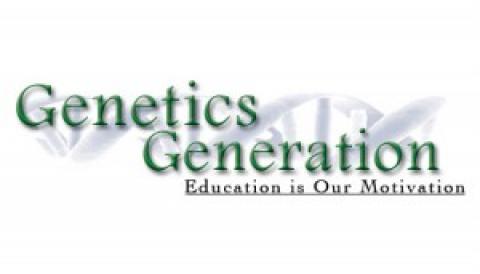The field of genetics has made headlines with groundbreaking advancements in recent years. The applications for genetic testing have expanded to include everything from diagnosing potential heritable diseases, to determining the sex of a baby during the first trimester, to creating a tailored exercise and nutrition regimen. The labeling of genetically modified (GM) foods was included on the latest ballot in California (Prop 37). While these topics are relevant to everyone, there is a huge disparity between what scientists and genetics professionals know and what the general public understands.
To address this disparity, we, students at the University of San Diego, have created a website to educate the public and bridge the gap between scientific literature and the general public. Our group of students, named Genetics Generation, formed during a senior-level biology course (Ethical Issues in Genetics). The website project, devised by our professor, Laura Rivard, PhD, developed from an interest in scientific literacy in the US.
Our website has a wide range of topics designed to introduce our users to the scope of genetics today. The genetics tutorial covers the basics of genetics, including chromosomes and patterns of inheritance, to more complex ideas such as gene therapy. Additionally, we discuss recent applications of genetics, including direct-to-consumer (DTC) genetic testing. Our blog feature will enable us to cover current genetic events and keep our users up-to-date. We also present ethical issues pertaining to the field of genetics, such as the use of preimplantation genetic diagnosis to create “designer babies.” Our interactive features include a quiz to test the user’s knowledge of genetics and “case studies” in which the user is presented with relevant genetic issues that raise an ethical dilemma. The user must decide what they would do in each situation and then cast a vote. Here is a sample case study from our website:
Case Study: Huntington’s Disease and Personal Autonomy
Scott, a 3- year-old male, has a family history of Huntington’s disease. Huntington’s disease causes neural degeneration, and eventually death. Affected individuals may experience mental and behavioral changes including paranoia, hallucinations and dementia, as well as physical symptoms such as difficulty walking and jerky movements. The disease has a late onset, which means symptoms don’t show up until about 35-40 years of age. Most people live about 20 years after symptoms become apparent. Scott decides to be tested for the genetic mutation that causes Huntington’s disease and finds out that he has it and will eventually get the disease.
Meanwhile, Scott’s wife, Catherine, discovers she is pregnant. Together they decide that they should get genetic testing done to determine if their unborn child inherited the mutation and will also get Huntington’s disease in adulthood. They will continue with the pregnancy regardless of the results. Although there is no medical intervention possible to stop the disease, they feel strongly that they want to know about their child’s future. At their next obstetric appointment, they inform their doctor of their wishes. The doctor hesitates because the parents are requesting information about a disease that will not affect their child until adulthood. At stake is the unborn child’s autonomy. Perhaps the child will NOT want to know if Huntington’s will strike in the future. But, by requesting the information during pregnancy, the parents are precluding their child’s free will. The parents counter that they will be better able to prepare their child for the future and will know how to offer appropriate emotional and psychological support.
If you were the doctor, what would you decide?
A. Do not test the unborn child. Since there are no preventative measures available for Huntington’s disease, it should be up to the affected individual (the unborn child), and no one else, to decide
B. Test the unborn child. The parents are your patients and are ultimately responsible for their child’s well-being. You must respect their wishes.
The motto of Genetics Generation is, “Education is our motivation.” By creating this website, we hope to clarify common misunderstandings and educate the public about genetics and ethical issues relating to this field, thus facilitating informed decision-making for our users.
Please direct questions regarding our website to Dr. Laura Rivard (lrivard@sandiego.edu)
Ricki Lewis is a science writer with a PhD in genetics. The author of several textbooks and thousands of articles in scientific, medical, and consumer publications, Ricki's first narrative nonfiction book, "The Forever Fix: Gene Therapy and the Boy Who Saved It," was published by St. Martin's Press in March 2012. In addition to writing, Ricki provides genetic counseling for parents-to-be at CareNet Medical Group in Schenectady, NY and teaches "Genethics" an online course for master's degree students at the Alden March Bioethics Institute of Albany Medical Center.
Guest blogger Courtney Chow is a University of San Diego senior.


Spread the word